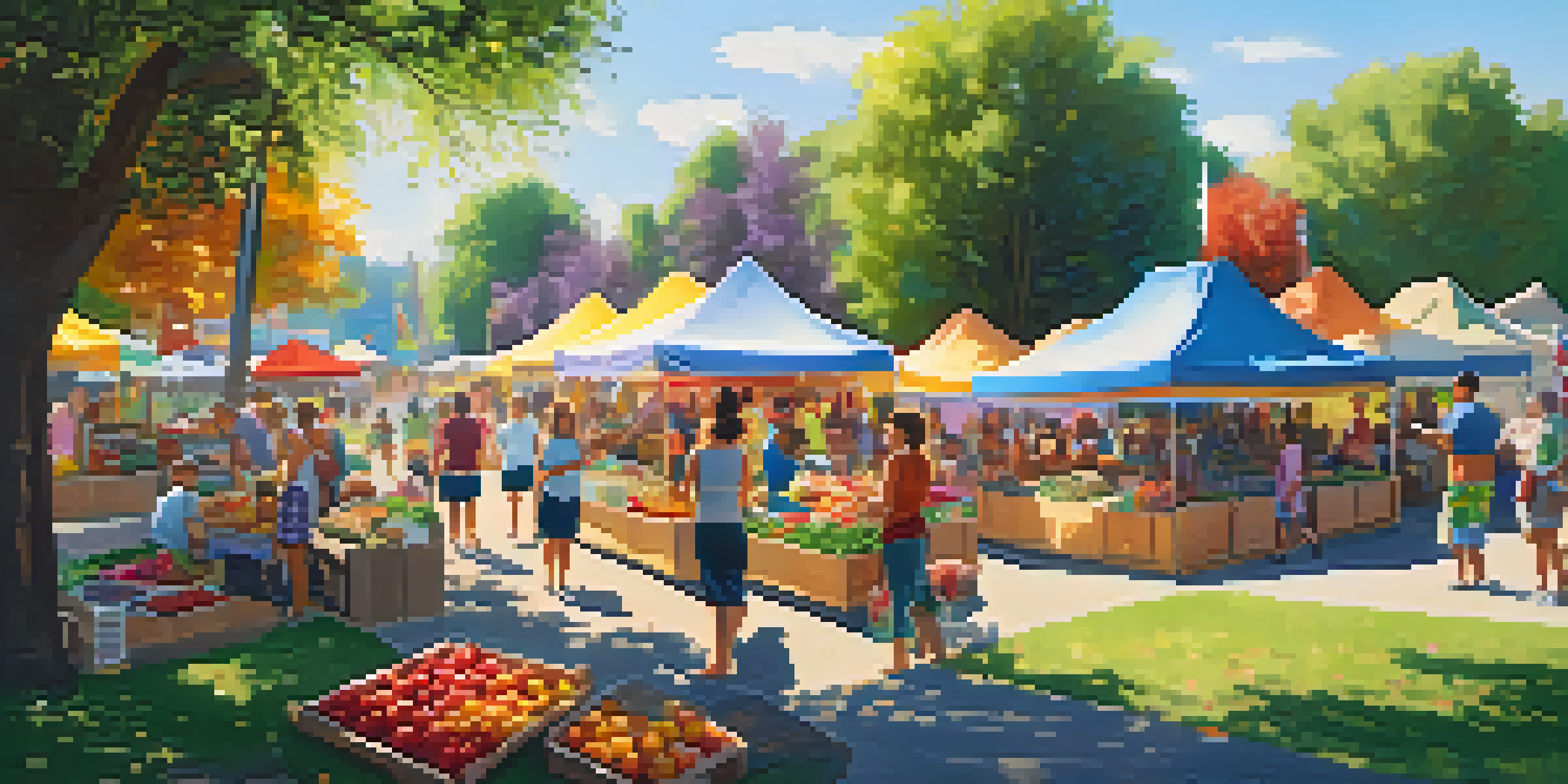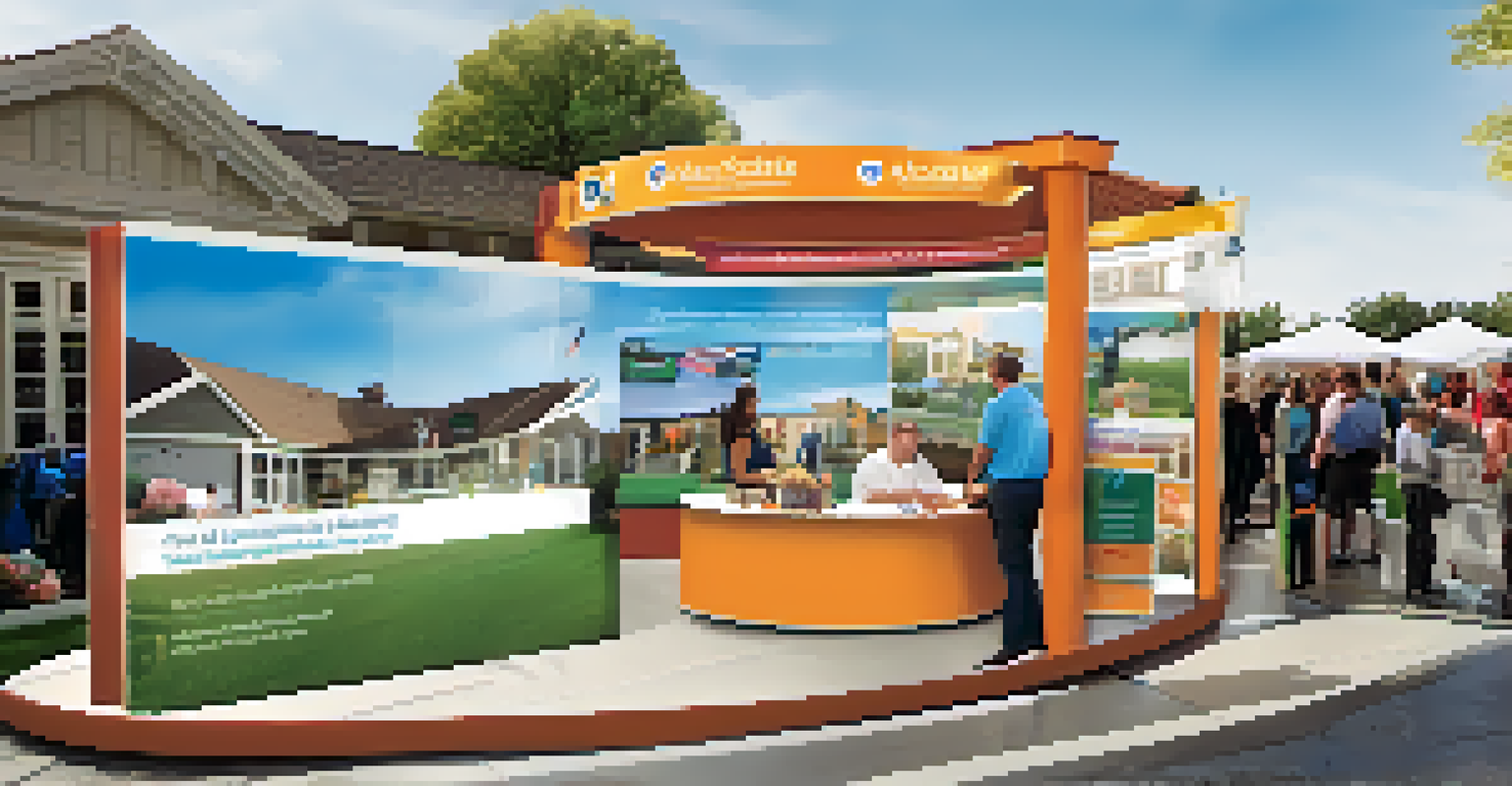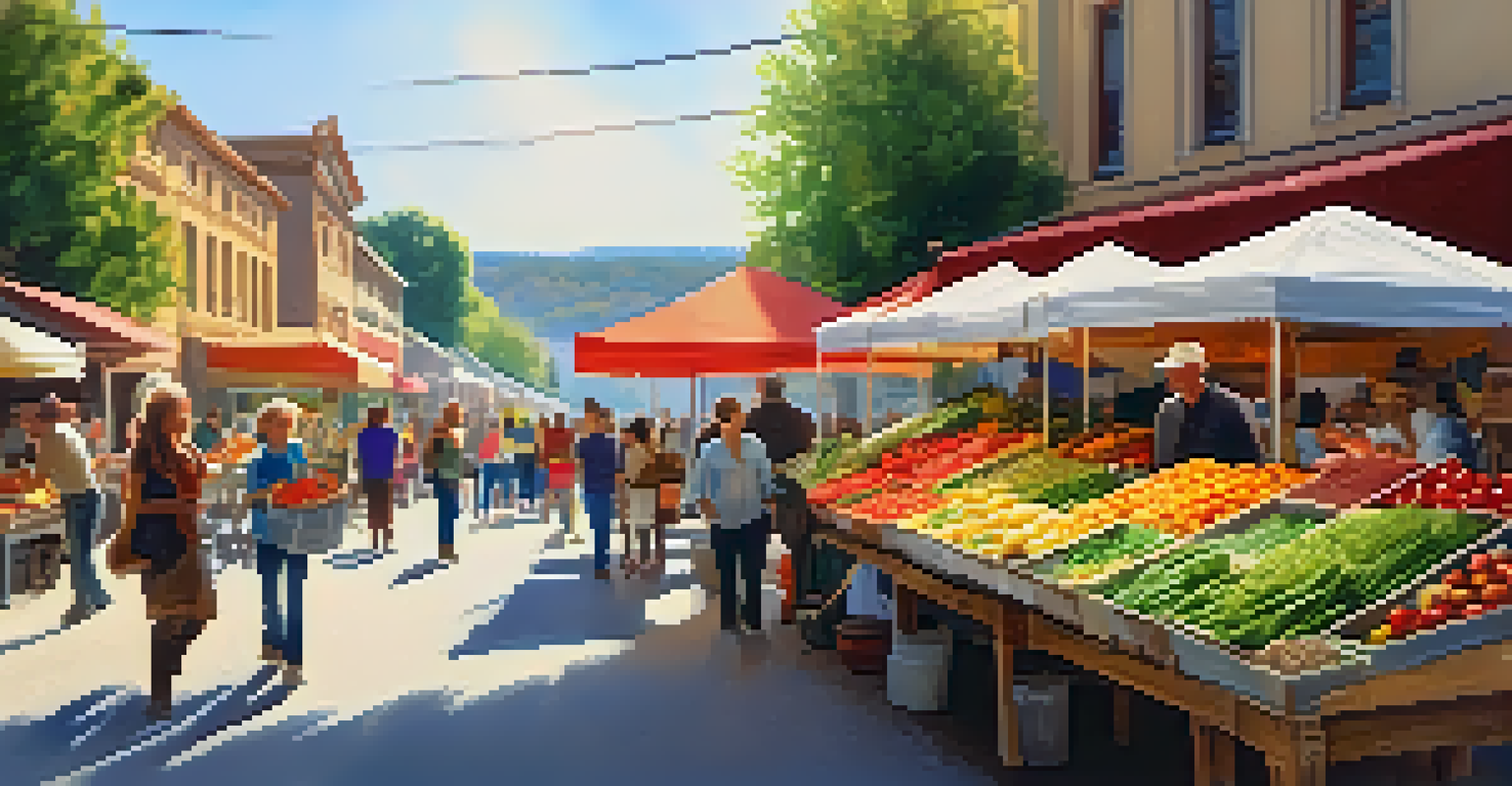Using Local Events to Market Real Estate Properties

Understanding the Power of Local Events in Real Estate
Local events are a fantastic way to connect with potential buyers and sellers. They provide a platform to engage with the community and showcase properties in a lively atmosphere. Think of it as a neighborhood gathering where you can create meaningful relationships.
The best way to predict the future is to create it.
These events can range from farmers' markets to art fairs, and they resonate well with audiences who appreciate community involvement. By attending or sponsoring these gatherings, you position yourself as a local expert, which builds trust and familiarity among attendees. This kind of connection can lead to referrals and inquiries down the line.
Moreover, utilizing local events allows you to tap into an existing crowd of interested individuals. Instead of cold-calling or using traditional marketing methods, you get to meet people face-to-face, making your approach feel personal and genuine.
Choosing the Right Local Events to Attend
Not all events will align with your marketing goals, so it's essential to choose wisely. Look for events that attract your target demographic, whether it's families, young professionals, or retirees. For instance, if you're marketing family homes, a community fair or school event would be ideal.

Additionally, consider the size and reach of the event. Larger events may offer more exposure, while smaller ones might yield more intimate connections. Balancing quantity and quality can maximize your efforts and ensure your message resonates with the right audience.
Local Events Build Community Trust
Engaging with potential clients at local events helps foster personal connections and establish trust within the community.
Don't forget to also factor in the timing of these events. Seasonal festivals or holiday celebrations can provide unique opportunities to showcase properties. Aligning your marketing efforts with local traditions can make your outreach feel timely and relevant.
Creating Engaging Booths or Presence at Events
Once you’ve chosen an event, it’s time to think about how to make your presence memorable. A well-designed booth can serve as a visual representation of your brand while attracting foot traffic. Consider incorporating eye-catching signs and interactive displays to draw attendees in.
People don’t care how much you know until they know how much you care.
Offering giveaways or contests can also create buzz around your booth. For example, you could raffle off a local restaurant gift card or a home decor item. This not only incentivizes people to stop by but also helps you collect contact information for follow-ups.
Moreover, having knowledgeable staff on hand to answer questions or give property tours can enhance the experience. Engaging with potential buyers in a friendly and informative way can leave a lasting impression that sets you apart from competitors.
Utilizing Social Media to Promote Your Event Presence
Social media is a powerful tool to amplify your presence at local events. Prior to the event, share your plans and encourage your followers to visit your booth. Creating an event page or using relevant hashtags can boost visibility and create excitement.
During the event, live updates on platforms like Instagram or Facebook can engage those who couldn’t attend. Share photos, videos, and even live-stream key moments to showcase your involvement and attract more attention to your brand.
Choose Events that Align with Goals
Selecting the right events based on your target demographic ensures your marketing efforts resonate effectively.
After the event, don’t forget to share a recap of your experience. Highlight any major interactions or success stories, and encourage attendees to reach out if they have questions. This not only keeps the conversation going but also reinforces your role as an active community member.
Building Relationships with Community Organizations
Partnering with local organizations can enhance your marketing efforts significantly. By collaborating with schools, charities, or local businesses, you can tap into their networks and increase your visibility in the community. This collaboration fosters goodwill and positions you as a supportive local business.
For example, sponsoring a local sports team can get your name out there while showing your commitment to the community. This not only promotes your brand but also builds rapport with potential clients who appreciate local involvement.
Additionally, these partnerships can open doors to co-host events or create joint marketing efforts. This synergy can lead to innovative ways to attract potential buyers and strengthen community ties.
Following Up After Local Events
The work doesn’t end once the event is over; following up is crucial for converting leads into clients. Send personalized thank-you notes or emails to everyone who visited your booth. This simple gesture helps keep you top-of-mind and shows you value their time and interest.
You can also include a call-to-action in your follow-up, inviting them to view properties or join your mailing list for future events. By providing something of value, you can continue the conversation and guide them through their home-buying journey.
Follow Up for Lasting Relationships
Post-event follow-ups are crucial for converting leads into clients and maintaining engagement after the initial interaction.
Additionally, consider offering exclusive event-related promotions to those who visited your booth. This can entice them to take action and engage with your services, turning interest into tangible results.
Measuring the Success of Your Event Marketing Efforts
To understand the impact of your event marketing, tracking metrics is essential. This could include the number of leads generated, social media engagement levels, or even follow-up appointments scheduled. These insights can help you evaluate what worked and what didn’t.
You might also consider using surveys to gather feedback from attendees. Their insights can provide valuable information about their interests and preferences, guiding your future marketing strategies.

Ultimately, understanding these metrics will help refine your approach for upcoming events. Continuous improvement based on real data ensures that your marketing efforts remain effective and relevant in a dynamic market.